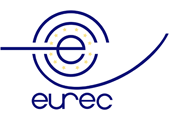menu
- Home
- National Information
- EC-Activities
- EUREC-Activities
- Legislation
- Training Materials
- Literature
- Events
- Newsletter
supported by:

Eurecnet - Training material details
Training material details
Teaching ethical aspects of science
Author(s): Fullick, Patrick; Ratcliffe, Mary (Eds.)
Document type: Book
Year: 1996
Pages: 150
Source: Publishing house: The Bassett Press (Southampton)
Research organisation, umbrella organisation: International Council of Scientific Unions, Committee on the Teaching of Science (ICSU – CTS): "Science, Ethics and Education Project"
Language(s): English
Classification
National background: Great Britain, United StatesCategory: EU Training Material for Research Ethics
Subject areas: Animal experimentation; Biotechnology; Environment; Ethical research (fraud and misconduct)
Content: Case studies; Ethical theories; Normative reflections
Issues touched: Social impact of research, economic benefits, risks for third parties Social background of research, conflicts of interest, researcher vs. doctor, commercialisation Fabrication, falsification, plagiarism, research on animals
Audience: Laboratory workers; Scientists; Students of natural sciences
Classification remarks: The book provides three introductory chapters on "Principles and methods", "An introduction to ethics" and "Teaching and learning strategies", primarily addressing teachers. The main part consists of nine case studies with very extensive and precise advice on how to implement them into course work, including time schedules, intended learning outcomes, information sheets, reading sections etc.
Estimation
Theoretical quality remarks: The second introductory chapter on ethical theories displays some short-comings (e.g. the lack of a presentation of virtue ethics, or the false assumption that duties always have corresponding rights). Additionally, the purpose of this chapter remains unclear, compared with the other two introductory chapters which raise clearly didactical issues addressing at the teacher: This second chapter is neither meant to be immediately presented to students, nor does it show any relation to didactical issues, nor does it qualified as a theoretical basis of ethics for teachers not acquainted with moral philosophy. The 9 case studies deal with the following questions: (1) "Should methyl bromide be used as a pesticide" (being a potential ozone depletor); (2) "Should we invest in ethanol as the futurefuel?" (with respect to exploitable resources and uncertainties in the success of such investions); (3) "Ethical considerations in the personal use of energy" (global vs. personal, developed countries vs. developing countries); (4) "Genetics and ethics: goals, rights and duties" (concealing a genetic disease to relatives); (5) "What is normal?" (distribution of genetic features); (6) "The universality of science" (Merton's norms of science); (7) "Using living things" (animal experimentation); (8) "Professional ethics - how do scientists approach their work?" (ethical principles of science, cold fusion scandal); (9) "Cars - good and bad consequences" (environmental aspects of car use). As the subjects indicate, not all the case studies really deal with research ethics. Thus, they are created to raise the awareness of researchers for the ethical impact of the application of science and technology. The book finishes with a short section containing unelaborated suggestions for further case studies.Didactical quality: Didactically prepared material
Overall estimation: excellent
Estimation remarks: The didactical concept may appear a bit over-regulated and over-structured with respect to the expected course of discussions. The focus of the evaluations outlined is often on a rather consequentialist line of argument so that the envisaged result often resembles technology assessment (which may be due to the technological examples chosen). However, teachers may find valuable material and interesting suggestions for structuring their course-work in this collection. Despite the critical remarks the book is as an example of excellence in the field of training material for research ethics.
